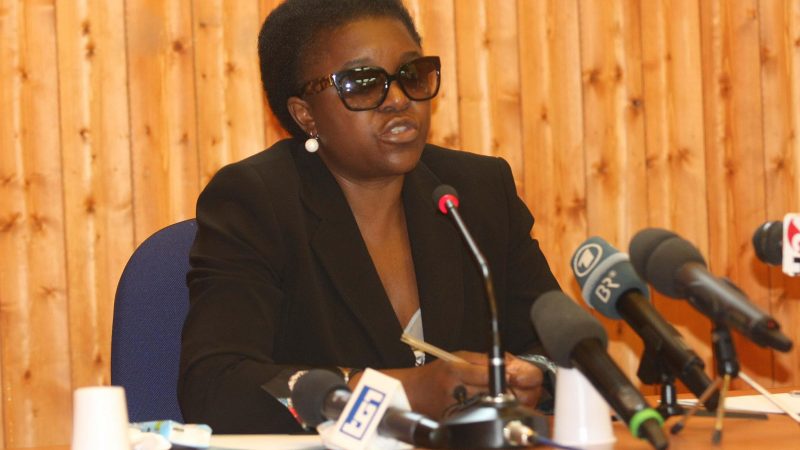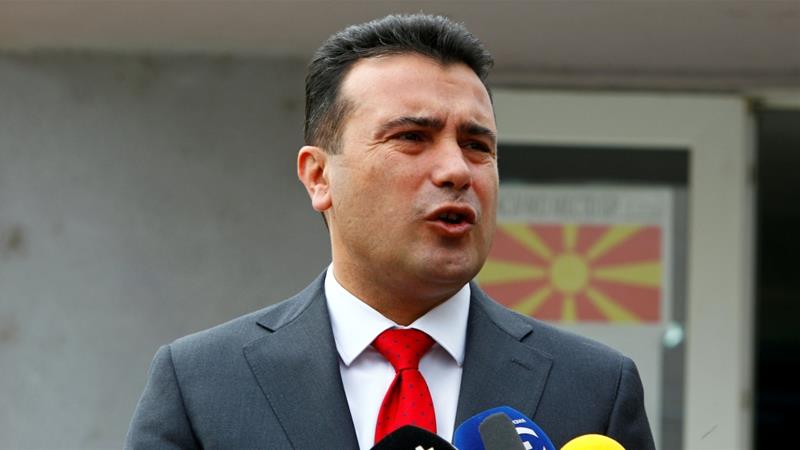BBC (15 October 2018)
Angela Merkel's sister party has suffered massive losses in Bavaria's state elections, exit polls suggest, in a blow to the German chancellor.
The CSU is set to lose its absolute majority in the state parliament.
The Greens surged into second place and the anti-immigration AfD entered the state parliament for the first time.
The CSU has ruled Bavaria almost single-handedly since 1957, but has lost support as opinion becomes polarised over issues like migration.
Party leader Horst Seehofer said it was "not a nice day", but added it was only "one side of the coin" as the vote gives "a clear mandate" allowing the CSU to form a new government.
Exit polls for major broadcasters said the CSU (Christian Social Union) won about 37% of the vote, down 10 points on four years ago, with the left-leaning pro-immigration Greens on 18%.
The Alternative for Germany (AfD) came fourth with 10%, behind a collective of independent candidates known as the Free Voters.
[Green leaders Ludwig Hartmann and Katharina Schulze celebrate after hearing exit polls] AFP
Many voters who disliked the tone of the migration debate may have turned to the Greens
Mrs Merkel's national coalition partners the centre-left Social Democrats (SPD) trailed in fifth with less than 10%, their vote halved.
There is speculation that it could pull out of the government in an attempt to survive as a party.
Its leader Andrea Nahles, blamed the poor performance in Bavaria on squabbling within the coalition.
It was a terrible night for Angela Merkel's Bavarian sister party.
The CSU has reigned supreme for decades in what is conservative country. But recent attempts to harden its tone and policies on migration, which included picking high-profile fights with Mrs Merkel, appear to have backfired.
It's bad news for Mrs Merkel too. Bavaria reflects what's happening at national level, the dwindling popularity of the traditional centre-right and centre-left parties.
Much may now depend on the results of state elections in Hesse in a fortnight. Mrs Merkel's CDU party is also losing support. Its general secretary Annegret Kramp-Karrenbauer said that what had happened in Bavaria was a warning.
What happened to the CSU?
The AfD's success in Bavaria has not been as great as in eastern Germany, but it appears to have taken large numbers of votes from the CSU.
But by echoing some of the AfD's hardline policies such as on migration, the CSU also seems to have lost the support of more moderate voters.
The CSU's Markus Söder, current Bavarian prime minister, said the projected result was painful but the party should learn from it.
"We have to analyse the changes taking place both in Bavaria and in society," he said.
"One of the most important jobs we now have is to ensure that this state is stable, governable, and remains as strong as it is now."
Bavaria key facts
- Nearly 13 million residents and the biggest by area of Germany's 16 federal states
- Capital Munich is Germany's third-largest city, after Berlin and Hamburg
- Second-highest GDP out of 16 German states
- Historically conservative region, with strong Catholic and local traditions
- Industrial powerhouse: car and IT sectors especially strong, rich in family-run firms
What is the bigger picture?
The poll is a serious setback for Mrs Merkel, just months after she formed a fragile coalition with the CSU and SPD - both of whom suffered huge losses in Bavaria.
The BBC's Jenny Hill in Bavaria says the election illustrates the complexity of the challenge faced by so many of Europe's large established parties.
It's not simply the rise of the far right, she says, but that voters are walking away in favour of smaller, newer movements.
No comments yet.
-
 EUROPE’S BLACK POLITICIANS STAND BY KYENGE IN SALVINI RACE TRIAL
Europe - EU
15.10.2018
EUROPE’S BLACK POLITICIANS STAND BY KYENGE IN SALVINI RACE TRIAL
Europe - EU
15.10.2018
-
 MACEDONIA PARLIAMENT TO VOTE ON NAME CHANGE
The Balkans
15.10.2018
MACEDONIA PARLIAMENT TO VOTE ON NAME CHANGE
The Balkans
15.10.2018
- HAYK MARUTYAN SWORN IN AS NEW MAYOR OF YEREVAN The Caucasus and Turkish-Armenian Relations 15.10.2018
- VISA LIBERALISATION FOR KOSOVO: THE ONLY TANGIBLE RESULT FOR THE FORESEEABLE FUTURE The Balkans 15.10.2018
- MERKEL'S BAVARIA ALLY CSU SUFFER 'MASSIVE LOSSES' Europe - EU 15.10.2018
-
19.04.2024
Türk-Ermeni İlişkileri Üzerine Ömer Engin Lütem Konferansları 2023 -
11.04.2023
Türk-Ermeni İlişkileri Üzerine Ömer Engin Lütem Konferansları 2022 -
27.03.2023
RADİKAL ERMENİ UNSURLARCA GERÇEKLEŞTİRİLEN MEZALİMLER VE VANDALİZM -
17.03.2023
PATRIOTISM PERVERTED -
23.02.2023
MEN ARE LIKE THAT -
03.02.2023
BAKÜ-TİFLİS-CEYHAN BORU HATTININ YAŞANAN TARİHİ -
16.12.2022
INTERNATIONAL SCHOLARS ON THE EVENTS OF 1915 -
07.12.2022
FAKE PHOTOS AND THE ARMENIAN PROPAGANDA -
07.12.2022
ERMENİ PROPAGANDASI VE SAHTE RESİMLER -
30.03.2022
Türk-Ermeni İlişkileri Üzerine Ömer Engin Lütem Konferansları 2021 -
01.01.2022
A Letter From Japan - Strategically Mum: The Silence of the Armenians -
01.01.2022
Japonya'dan Bir Mektup - Stratejik Suskunluk: Ermenilerin Sessizliği -
11.02.2021
Türk-Ermeni Uyuşmazlığı Üzerine Ömer Engin Lütem Konferansları 2020 -
03.06.2020
Anastas Mikoyan: Confessions of an Armenian Bolshevik -
08.04.2020
Sovyet Sonrası Ukrayna’da Devlet, Toplum ve Siyaset - Değişen Dinamikler, Dönüşen Kimlikler -
18.03.2020
Türk-Ermeni Uyuşmazlığı Üzerine Ömer Engin Lütem Konferansları 2019 -
08.03.2019
Türk-Ermeni Uyuşmazlığı Üzerine Ömer Engin Lütem Konferansları 2018 -
12.06.2018
Ermeni Sorunuyla İlgili İngiliz Belgeleri (1912-1923) - British Documents on Armenian Question (1912-1923) -
02.12.2016
Turkish-Russian Academics: A Historical Study on the Caucasus -
01.07.2016
Gürcistan'daki Müslüman Topluluklar: Azınlık Hakları, Kimlik, Siyaset -
10.03.2016
Armenian Diaspora: Diaspora, State and the Imagination of the Republic of Armenia -
24.01.2016
Ermeni Sorunu Temel Bilgi ve Belgeler (2. Baskı)
-
AVİM Conference Hall 24.01.2023
CONFERENCE TITLED “HUNGARY’S PERSPECTIVES ON THE TURKIC WORLD"









